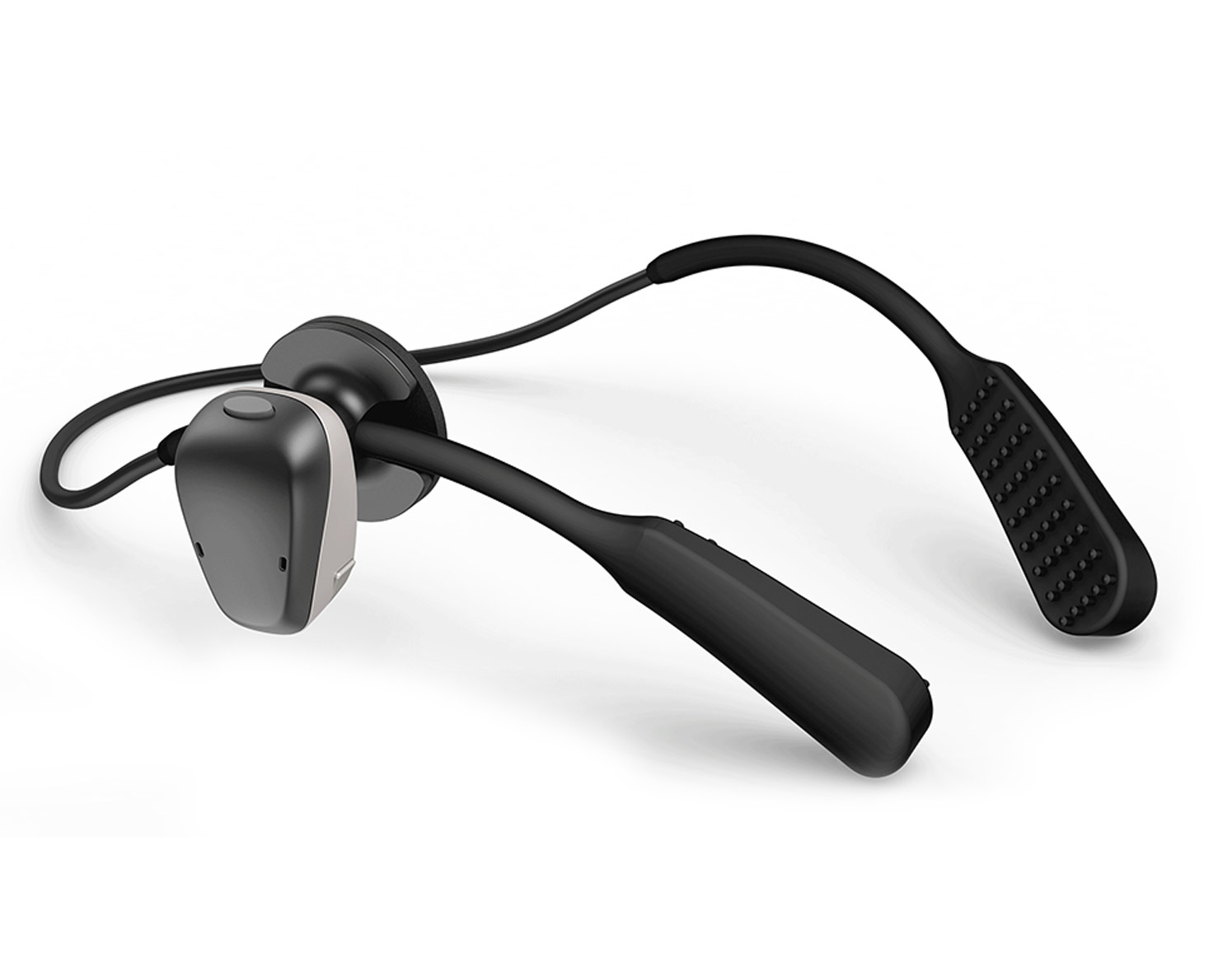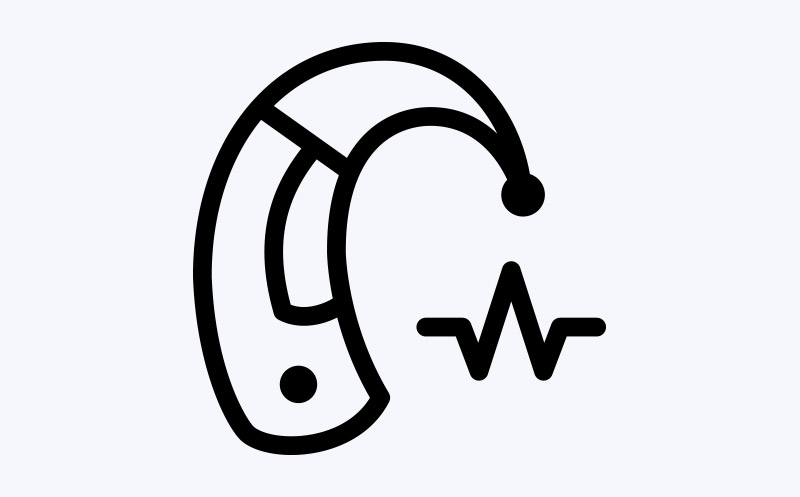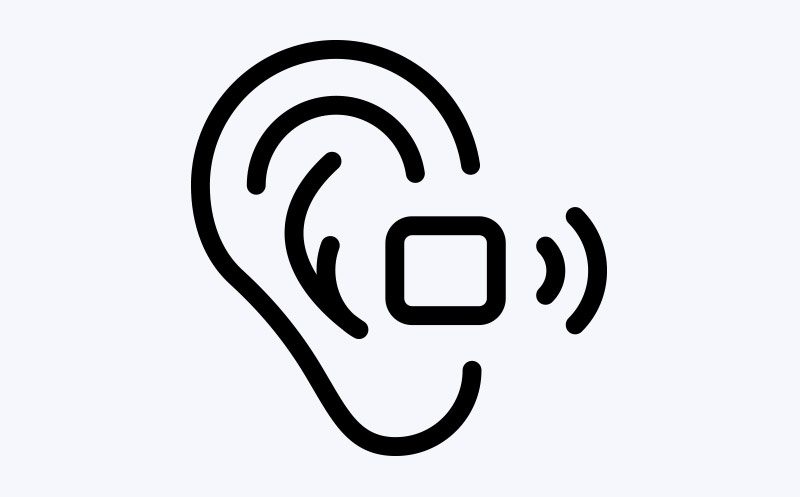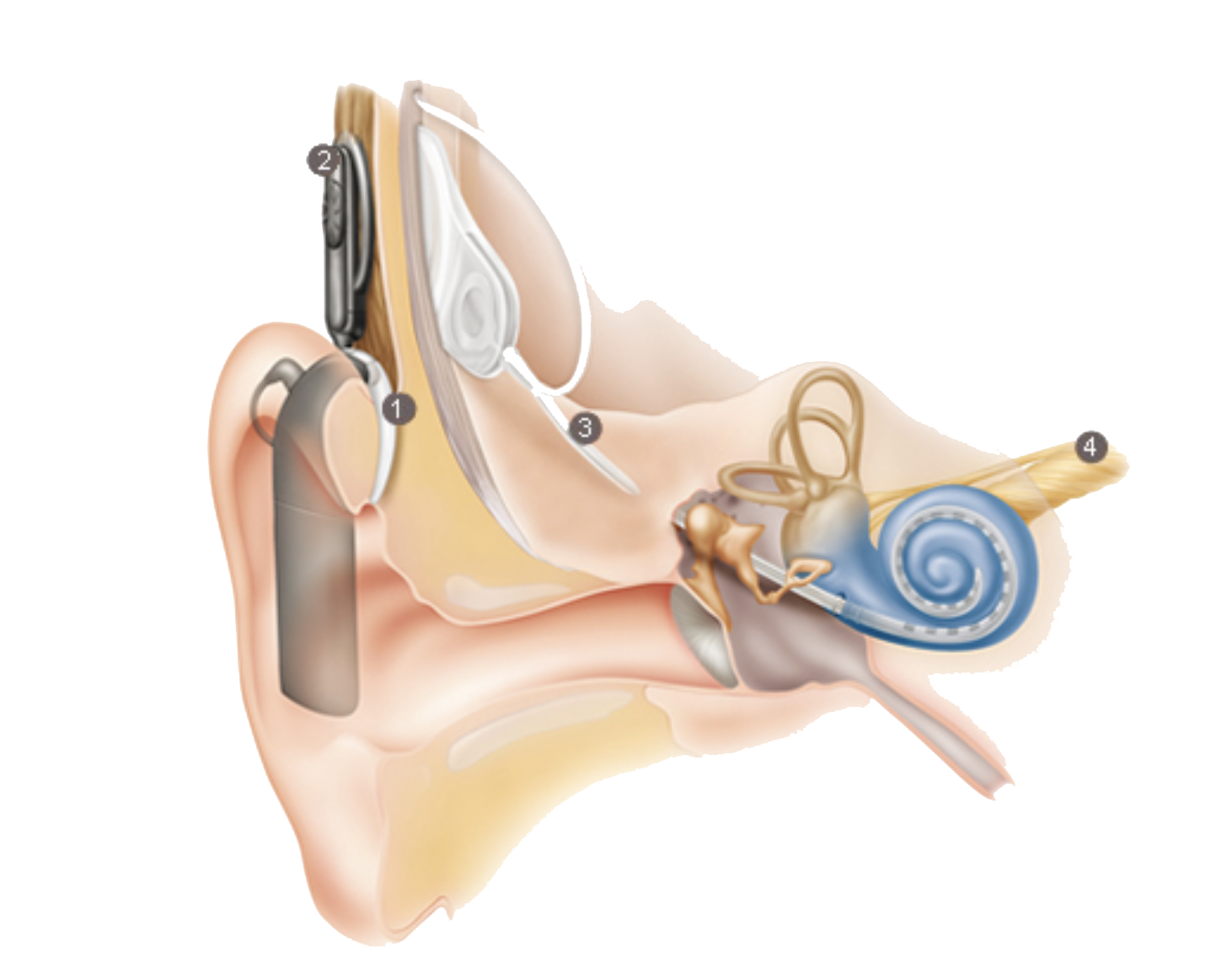
Hearing Aid & Cochlear Implant Services
Hearing loss treatment does not always involve hearing aids. Some forms of hearing loss are treatable with medicine, surgery or in case of mild ear blockage due to colds. It is only when a person’s hearing loss is permanent and affects daily functions, hearing aids and assistive listening devices are recommended by audiologists.
We offer a variety of hearing aids, bone anchored hearing aids, wearables and cochlear implants.
We offer hearing aids from the following brands:
And cochlear implants from:
For how to choose the right hearing aid for yourself please see How to choose hearing aid.
Hearing Aid Services
For new hearing aid users, we sell and dispense Health Science Authority registered hearing aids, bone anchored hearing aid and body aids. To learn more about our dispensing services, see What to expect for your first hearing aid fitting. All hearing aid fittings are done with real ear-measurements and verified with aided hearing and speech audiometry.
Hearing Assessment
We diagnose the type and severity of hearing loss and determine whether or not the patient needs hearing aids. [expand title=”Read More” swaptitle=”Close” trigpos=”below”]In cases where the patients’ hearing loss may be treatable, the patient may be referred to his or her doctor for medical or surgical intervention.
Duration: 30- 45 minutes
Number of sessions: 1
Tests done: Pure tone audiometry, otoscopy, tympanometry[/expand]
Hearing Aid Trial
On average, successful hearing aid fittings patients take 1-4 weeks to try out hearing aids before selection as this minimises the risk [expand title=”Read More” swaptitle=”Close” trigpos=”below”]of rejection after the fitting.
As patients have different perceptions and experience with hearing aids, family support, vision and dexterity capabilities, we encourage each patient to spend at least 45 minutes during their trial session. We can better understand our patient’s needs and also address all questions and concerns.
Duration: 45 minutes to 1.5 hours
Number of sessions: 1-4 sessions
Tests done: Real ear measurement, Speech audiometry[/expand]
Selection, Initial Fitting & Orientation
Once the patient has chosen his or her preferred hearing aid, it will take about 1-3 days for customisation and hearing aid fitting. [expand title=”Read More” swaptitle=”Close” trigpos=”below”]Hearing aid fitting means to program and fine tune both physical and acoustic attributes of the hearing aid to fit the patient.
Most patients are given an orientation on hearing aid use on the fitting day itself. If patients feel overwhelmed by the information during the initial fitting, they can choose to have the orientation on a sperate day.
Duration: 30- 45 minutes
Number of sessions: 1
Tests done: Real ear measurement[/expand]
Counselling & Follow-up
We provide post-fitting counselling and follow-up to new hearing aid users and to experienced users who [expand title=”Read More” swaptitle=”Close” trigpos=”below”]have not received these services or who may want a “refresher” course:
- Hearing aid use and care
- Appropriate and inappropriate hearing and listening behaviours
- Realistic expectations
- Basic speechreading
- Hearing assistive technology
- “Helpful hints” for communicating with spouse
- “Helpful hints” for spouse communicating with patient
- Community resources
Duration: 30- 45 minutes
Number of sessions: 1
Tests done: – [/expand]
What if I already have hearing aids?
For existing hearing aid users who have already purchased their hearing aids from from government hospitals or local private vendors, we offer the following:

Hearing Aid Evaluation, Fine-tuning & Real Ear Measurements

Cleaning & Servicing

Hearing Aid Repairs & Replacement

Ear Mould Maintenance

Software Upgrades
Cochlear Implant Services

- A sound processor is an external device worn behind the ear and captures sound and turns them into a digital code
- The implant converts the digitally-coded sound into electrical impulses and sends them along the electrode array placed in the cochlea (the inner ear).
- The implant’s electrodes stimulate the cochlea’s hearing nerve, which then sends the impulses to the brain where they are interpreted as sound.(Taken from cochlear website)
(1) Cochlear Implant Candidacy Assessment
We work with the patient’s ENT surgeon of choice to evaluate [expand title=”Read More” swaptitle=”Close” trigpos=”below”] whether a patient will benefit from a cochlear implant. The audiological and medical examination will include:
- Full hearing assessment
- Physican examination
- Hearing aid trial
- Imaging examinations:
- Computerised Tomography scan
- Magnetic Resonance Imagining
- Psychological examination
[/expand]
(2) Expectations Counselling & Device Selection
In this counselling session, [expand title=”Read More” swaptitle=”Close” trigpos=”below”]we ensure our patient and family understand the follow-up commitment required after the implant surgery, as well as what to expect regarding device performance and limitations.
Patients are also given the opportunity to meet representatives from the different cochlear implant manufacturers and to select the brand they are comfortable with.
[/expand]
(3) Surgery Preparation
The patient will meet with the surgeon and will be briefed on: [expand title=”Read More” swaptitle=”Close” trigpos=”below”]
- What surgery is planned, along with the risks, benefits, and other options.
- All medicines and supplements that will increase risk of complications during and after surgery.
- Child patients will be briefed on how surgery will improve his or her hearing and parents will be taught how to make things easier for their child
- Planning for recovery, families or loved ones are briefed on how to care and comfort patient after surgery.
Recommended dose of pneumococcal vaccines at least two weeks before cochlear implant surgery.[/expand]
(4) Surgery Day
The average surgery takes between 1.5 to 5 hours. Patient will be kept safe and comfortable. [expand title=”Read More” swaptitle=”Close” trigpos=”below”]The surgery will be done while the patient is asleep under anaesthesia.
The doctor will make a small cut behind the patient’s ear and place the implant in the cochlea. The cut will leave a scar that will fade within a few months.
Most patients go home the day or surgery or the next day. Most can return to work in 1 week.
The patient’s hearing will remain the same after surgery. The patient will not start to hear until 2 to 4 weeks later when the implant is turned on. This allows the ear ample time to heal.
[/expand]
(5) Activation of Cochlear Implant
About 2 to 4 weeks after the surgery, the patient will return to our centre to be fitted with his or her sound processor.[expand title=”Read More” swaptitle=”Close” trigpos=”below”]
We will activate or “switch on” the cochlear implant and begin the fine-tuning the sound processor. The fine-tuning of the sound processor is also known as “MAPping”.
In this session, we encourage family members to come and share in the moment where patients experience hearing his or her first sound with the cochlear implant. It may be an emotional session for patients, and some choose to bring their own videorecorders to remember their first experience with sound.
[/expand]
(6) Fine-tuning of Sound Processor
After the activation, patients are required to return to our centre for more fine-tuning and adjustments. [expand title=”Read More” swaptitle=”Close” trigpos=”below”]Most patients need time to adjust to hearing sounds on their sound processor, we make small increments in sound at every session.
Some patients chose to return for a total for 4 sessions within the first month. Followed by a session at the third, sixth and ninth month.
During this time, patients may want to schedule visits to our auditory verbal therapist for rehabilitation to improve their hearing outcomes.
[/expand]
(7) Stabilised Hearing Level
Most patient’s hearing ability peaks during the 6th or 9th month [expand title=”Read More” swaptitle=”Close” trigpos=”below”]after activation of cochlear implant. After which, they might choose to return only for annual visits.
However, it is recommended that patients continue to work on their rehabilitation with our auditory verbal therapists to maximise their listening abilities.[/expand]
(8) Annual Check Up
Patients are recommended to return once a year for a physical and hearing check-up [expand title=”Read More” swaptitle=”Close” trigpos=”below”]with both the surgeon and audiologist. Also, patients can request for fine-tuning and servicing of the sound processor.
[/expand]
Adult Aural Rehabiliation & Auditory Verbal Therapy
For some users who are unable to benefit from hearing aids, cochlear implants, or which to maximise the use of their devices, they can consider seeing an auditory verbal therapist or a speech & language therapist. These therapists train users in using assistive listening devices, they also equip users with communication strategies, auditory training sessions, relaxation techniques and educational counselling.




